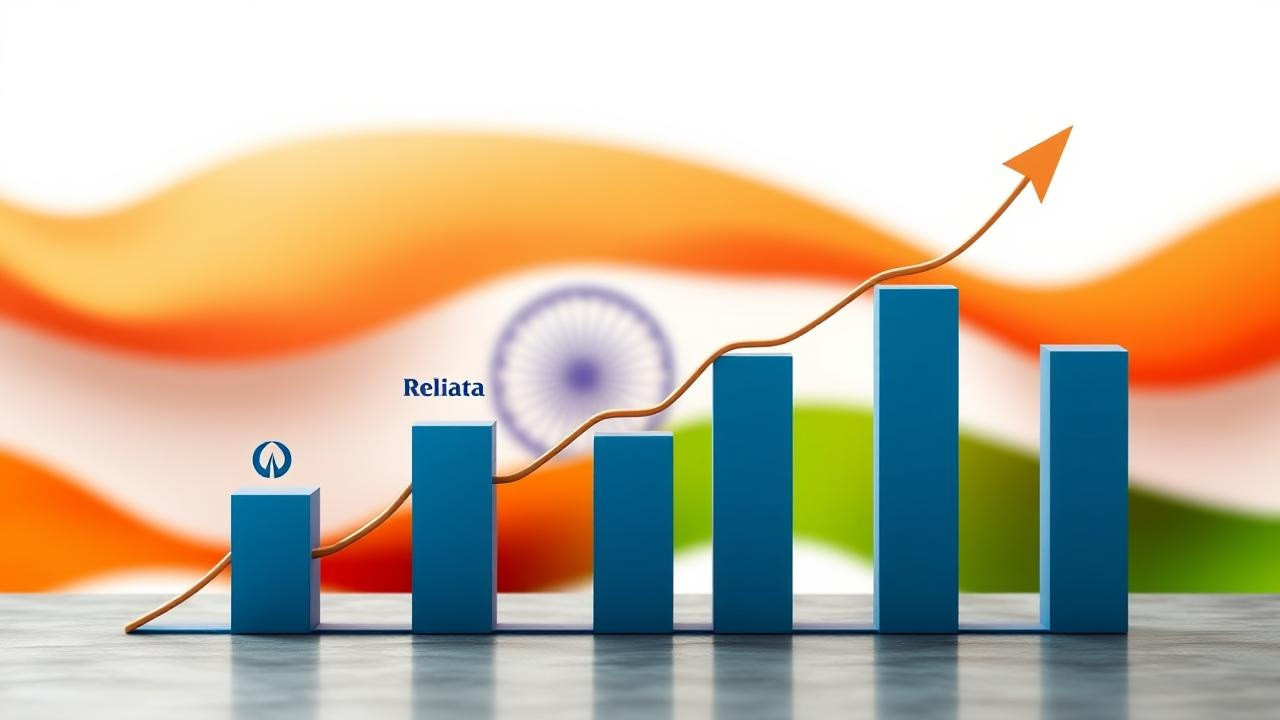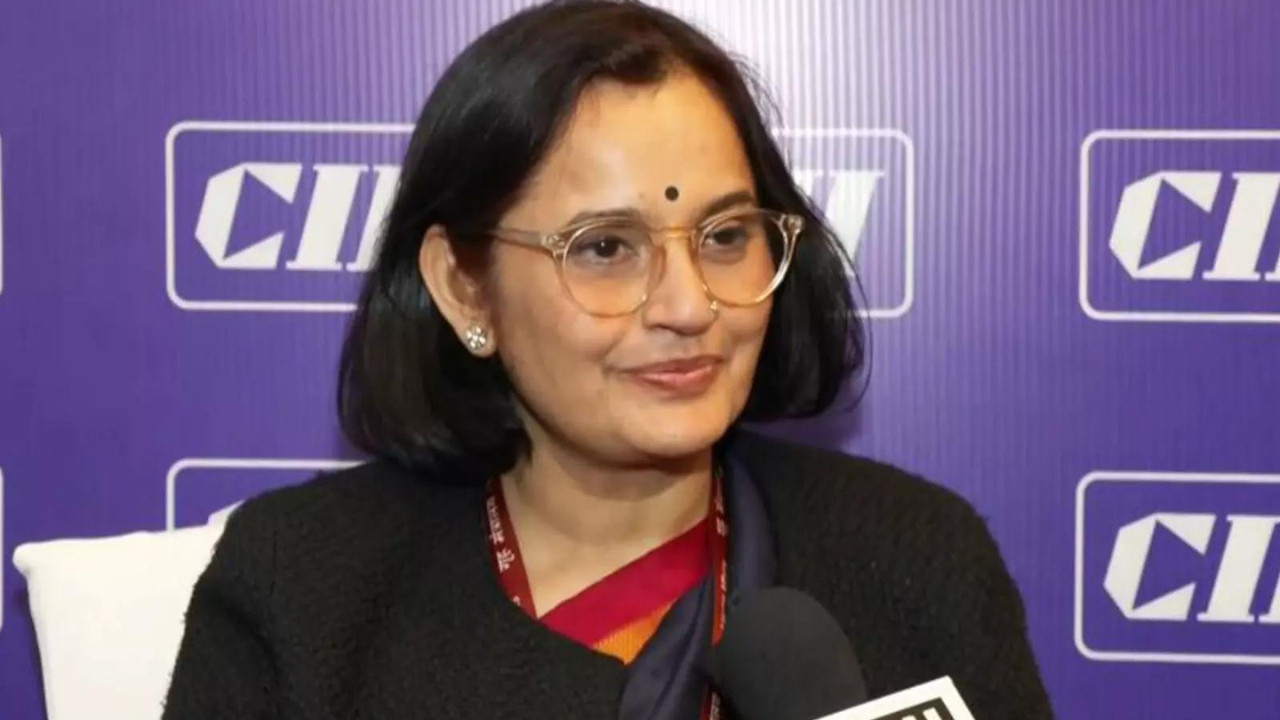Fueled by bullish domestic equities, eight of the top-ten most valued firms in India saw a combined market valuation increase of over Rs 1.72 lakh crore last week. Reliance Industries emerged as the biggest gainer, while HDFC Bank and SBI experienced declines in market capitalization. Reliance Industries remains the most valued firm, followed by HDFC Bank and TCS.
Market Movers: How Reliance, TCS, and Airtel Powered a ₹1.72 Lakh Crore Surge
The Indian stock market has been a bit of a rollercoaster lately, hasn’t it? While global economic uncertainties and fluctuating investor sentiment continue to paint a complex picture, some titans of Indian industry are showing remarkable resilience and driving significant growth. This past trading week offered a fascinating glimpse into how individual company performances can dramatically influence the overall market capitalization (mcap) of India’s top players.
Think of it like this: the top 10 companies by market cap are the heavy hitters on a cricket team. When some are smashing sixes, they can really boost the team’s score, even if a couple of batsmen get out early. This week, Reliance Industries, TCS (Tata Consultancy Services), and Bharti Airtel played the role of those six-hitting batsmen, propelling the combined mcap of the top 10 listed firms upward by a whopping ₹1.72 lakh crore.
The surge wasn’t a uniform wave lifting all boats. While Reliance, TCS, and Airtel enjoyed substantial gains, industry behemoths like HDFC Bank and State Bank of India (SBI) acted as a drag, their performance tempering the overall positive trend. It highlights a crucial point: even within the elite group of India’s most valuable companies, individual fortunes can diverge considerably.

Reliance Industries: A Continual Force
Reliance Industries, a name synonymous with Indian business, continues to be a powerful force. Its diversified portfolio, spanning energy, telecom (Reliance Jio), and retail, allows it to weather economic storms more effectively than companies heavily reliant on a single sector. The company’s ongoing investments in renewable energy and its aggressive expansion in the retail space signal a clear vision for future growth. Investors seem to share that vision, driving up the company’s share price and contributing significantly to the overall mcap increase. Remember when Jio disrupted the telecom market? That’s the kind of innovative thinking that keeps Reliance ahead of the curve.
TCS: Riding the Digital Transformation Wave
Tata Consultancy Services (TCS), a global IT services giant, is perfectly positioned to capitalize on the ongoing digital transformation sweeping across industries. As businesses worldwide invest heavily in cloud computing, artificial intelligence, and cybersecurity, TCS’s expertise in these areas is in high demand. The company’s strong order book and its ability to secure large, multi-year contracts provide a stable revenue stream and fuel investor confidence. TCS is not just keeping up with the times; it’s actively shaping the future of technology, which is reflected in its market performance. It’s worth exploring TCS’s impact further and seeing how other companies like Infosys are contributing to the Indian IT sector.
Bharti Airtel: Connecting India and Beyond
Bharti Airtel’s rise mirrors the growing importance of connectivity in the modern world. As India’s second-largest telecom operator, Airtel is a key player in providing mobile and broadband services to a vast and expanding customer base. The company’s strategic investments in network infrastructure and its focus on enhancing customer experience are paying dividends. Moreover, Airtel’s expansion into other digital services, such as payments and entertainment, is creating new revenue streams and solidifying its position as a leading digital player. The increasing demand for data and seamless connectivity is expected to further fuel Airtel’s growth trajectory.
HDFC Bank and SBI: Navigating Challenges
While Reliance, TCS, and Airtel were riding high, HDFC Bank and SBI faced headwinds. The banking sector is currently grappling with issues such as rising interest rates, potential asset quality concerns, and increased competition from fintech companies. These factors likely contributed to the underperformance of HDFC Bank and SBI during the week. However, these are established institutions with strong fundamentals, and their long-term prospects remain positive, albeit contingent on navigating the current challenges effectively.
What Does This Mean for Investors?
The recent market activity underscores the importance of diversification and a long-term investment horizon. While short-term market fluctuations are inevitable, focusing on fundamentally strong companies with a clear growth strategy can yield significant returns over time. The contrasting performances of Reliance, TCS, and Airtel versus HDFC Bank and SBI highlights the importance of understanding the specific dynamics of different sectors and individual companies.
Ultimately, the Indian stock market is a dynamic and evolving landscape. The ability of companies like Reliance, TCS, and Airtel to drive significant mcap growth demonstrates the potential for value creation within the Indian economy. As India continues on its path of economic growth and technological advancement, expect these market dynamics to continue playing out in exciting and unpredictable ways. Keeping a keen eye on these key players and understanding the factors driving their performance is crucial for any investor looking to navigate the Indian stock market successfully.







